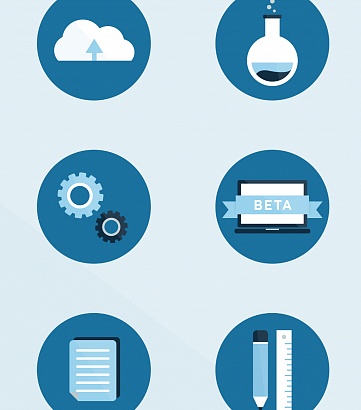riverbp
Network of river basins / Meetings
Meeting with the students fosters cooperation with academia on water issues
 12.10.2017
12.10.2017

Cooperation on water issues between CAREC within the Smart Waters project and the Kazakh-German University (DKU) started in 2016 with singing of the cooperative agreement. As a result, two young professionals, from each country of Central Asia and Afghanistan received an opportunity to study for Masters’ degree in one of the leading international universities.
________
“We are very lucky that we established such a good level of cooperation with the academia in the region. Close cooperation of academia and experts of the field gives excellent results,” underlines Dr Iskandar Abdullaev, Executive Director of CAREC.
In order to sustain existing level of cooperation, and to foster capacity building and academic exchange, the project provided leading water specialists of the region an opportunity to expand their knowledge in the water management field with the help of DKU MA IWRM Program. Experts of Smart Waters conduct regular meetings with students and management of DKU to assess achieved results and formulate next steps. Therefore, the regular meeting of students, conducted on October 6, 2017 summarized success and endeavors of the first year of cooperation. Students of the first and second year of study came to CAREC office to get familiarized with the Smart Water Project’s activities, share their concerns and expectations and discuss next steps. All of them are young specialists, who were working in water sectors in their respective countries and involved in decision-making processes on water issues.

One of such talented students is Mukhamaddaut Hamidi, who is a second-year student, and shared his thoughts and plans for the future during the meeting. Having four years of previous professional experience in the water sector of Afghanistan, he intentionally was looking for a degree program to deepen his knowledge in water sector. He says: “I was lucky to enter this program, because it gave me an opportunity to clearly set goals and understood my professional future. I would like to reform the Water Law of Afghanistan, giving special attention to the provisions such as quality of the water, disputes resolution, and introduction of IWRM principles”. Moreover, Mukhammaddaut dreams to involve local community into the decision-making process. Thus, he thinks that members of Mirob, traditional water users’ system, should be included into the water management system. “People from such systems, as Mirob, representing local population, better know the needs and can help in effective reforming water sector. My study helped me to explore the importance of local population in decision-making process by case studies of water users’ associations and other organizations, as well as on practical knowledge I was able to obtain from Smart Waters Project experts”.
________
“The most useful aspect for students is an ability to use university as a theoretical platform and CAREC, Smart Waters Projects as a practical platform, thus generating excellent results,” said Dr Barbara Janusz-Pawletta, DKU.
“Most useful for me is an opportunity to learn international experience in integrated water resources management process, which I can implement for the future of water sector in my country,” says Zhanara Myrzabekova, a first-year student from Kyrgyzstan. Having experience working for the Department of Water and Melioration under the Ministry of Agriculture of the Kyrgyz Republic, she is dreaming to make a research of policy-making process in water management and introduce European experience for the benefit of her country. She says: “We can not change the situation in a minute, but we can undertake necessary steps towards progress”. Smart Waters Project believes that these specialists are the bright future who are able to implement international experience along with understanding realities of the water sector in the region and eager to cooperate in the future.
The Smart Water Project is implemented by the Regional Environmental Center for Central Asia, funded by the United States Agency for International Development (USAID).

